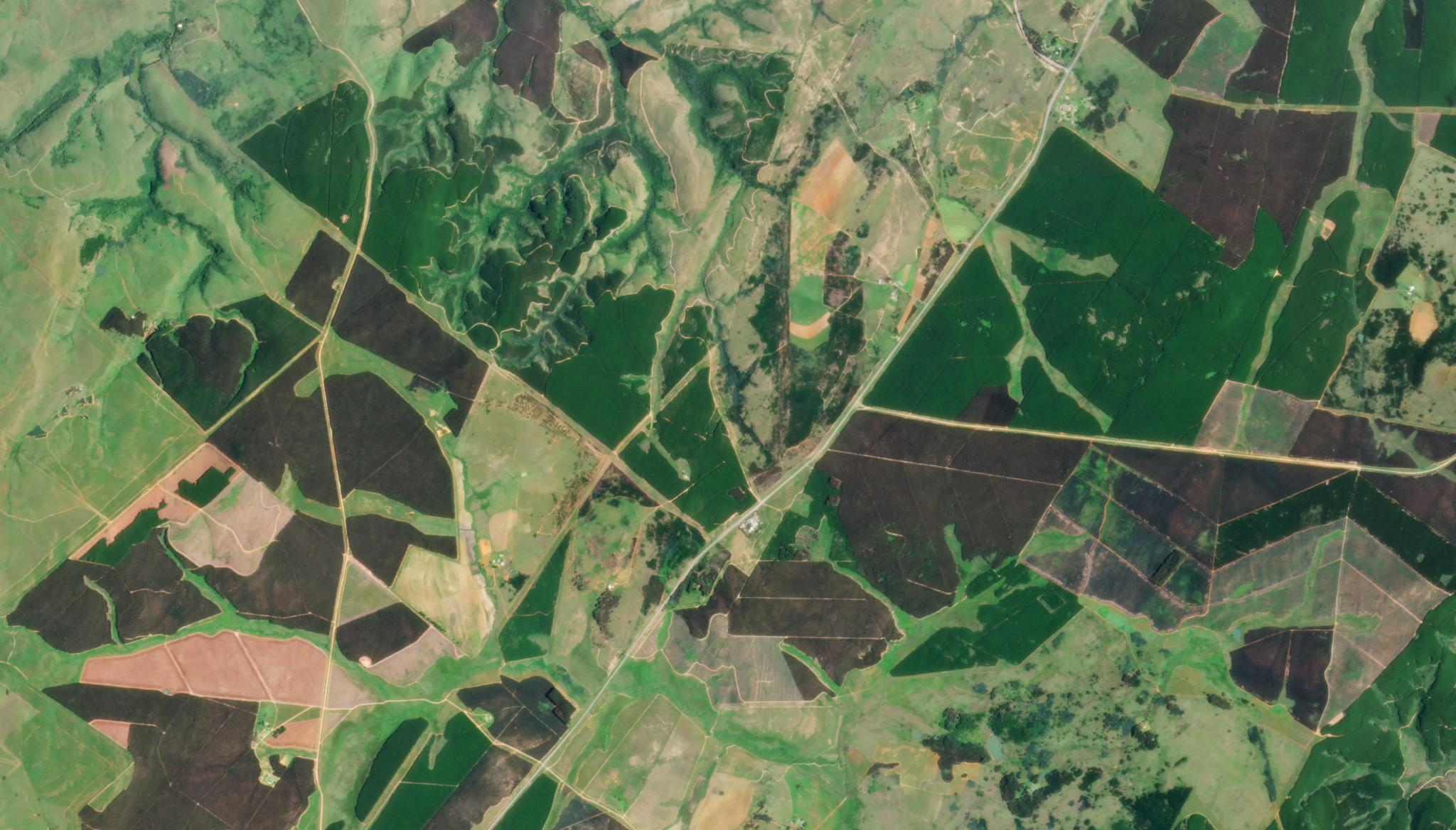Monitoring How Baboons Impact Timber Commodities in South Africa
Image above: Commercial forests for timber commodity creation in Mpumalanga, South Africa taken January 12, 2023. © 2023, Planet Labs PBC. All Rights Reserved. In South Africa, commercial timber operations and native wildlife can sometimes come into conflict. Forests planted for commodity creation in the region are often homogeneous monocultures of exotic species. However, these aspects can make the trees susceptible to local factors. Notably, local baboons have the tendency to damage such trees, stripping off bark from trees and chewing on it, resulting in the death or damage of these timber commodities. As an important economic resource, researchers feel it is important to monitor these timber forests in order to identify when damage have been made to certain trees and make a timely intervention to protect them from further baboon bark stripping. Scientists in South Africa from Nelson Mandela University, the Institute for Commercial Forestry Research, and the University of KwaZulu-Natal have leveraged artificial intelligence and PlanetScope data to map different levels of baboon damage within commercial pine forests. Their study explored deep learning neural networks alongside our satellite data as a method for having early detection of pine tree damage. The researchers suggested a repeatable method for monitoring and mapping the health of these trees on a near-daily basis. The full study can be found in the South African Forestry Journal.

Ready to Get Started
Connect with a member of our Sales team. We'll help you find the right products and pricing for your needs


